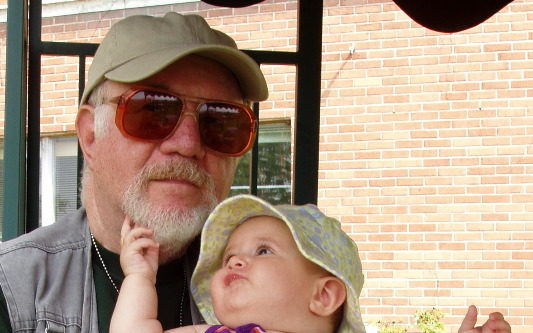
Rick Safran is an alumnus of two of JCCA’s predecessor organizations, the Hebrew National Orphan Home (HNOH) and the Israel Orphan Asylum, where he resided for a total of 11 years. Now retired at 82, Rick had a distinguished career as an educator and administrator in the New York City school system. For many years, Rick was an active fundraiser for JCCA programs and was also the editor of “Alumnus,” the alumni newspaper of HNOH. He, along with other HNOH alumni, was instrumental in establishing the Reuben Koftoff Memorial Scholarship Fund, which provides educational scholarships for youth in JCCA programs. Rick spoke candidly with us about his history and passionate commitment to the future of the children in our care.
JCCA: Can you talk about your childhood and what led you to enter HNOH and the Israel Orphan Asylum?
RS: I came to HNOH in June 1942, when I was 7. My father had died of heart disease in his sleep. My mother dragged me around for a year or two, but couldn’t really take care of me, so put me in HNOH, a practice not uncommon in those days. When I was 17, she committed suicide and I became a true orphan.
JCCA: What was it like for you at HNOH?
RS: There were around 400 kids there, so we experienced a little bit of everything, both good and bad. We remember people saying, “There go the poor orphans.” We felt some degree of shame that we were there—vulnerable and dependent. The orphanage was in a wealthy community, so many of us felt socially inadequate, but that didn’t stop us from participating on all levels in school. It seemed to us that nuclear families were better than what we had, but, of course, as one reads great literature, one sees that all families have some dysfunction. I didn’t experience a residue of bitterness–I feel fortunate in that way.
 JCCA: What were your relationships like with the other kids? Did you talk about your past, hopes, and dreams?
JCCA: What were your relationships like with the other kids? Did you talk about your past, hopes, and dreams?
RS: We all made close friends there. By the time we were 18, we had experienced a long journey of growth and maturity. We developed a strong sense of camaraderie and brotherhood, and a fierce devotion to each other, largely through sports like basketball and baseball. We also had a great library that opened up the world of Tarzan and Shakespeare. That was a place of calm and refuge, and a tremendous resource.
At 16 or 17, we talked a lot about sex. We never spoke about love or marriage or family. We were terrified that if we got married and failed at that, our kids might also end up in orphanages. All of us had really rough personal stories. We didn’t open up much to one another about our own experiences. We didn’t lack empathy, but were sublimating, and tried to put our energies into sports instead. We were insecure and lacked the self-confidence to confide too much in each other, but we survived and became self-sufficient.
JCCA: Did you remain close friends after leaving the orphanage?
RS: Yes. I had a friend who pushed a hand truck in the garment district—I sent him money to go to college. Many of us routinely sent money to friends to help them out. We all shared what we had—it was simply something we did. Most of us have joined the community we envied back then. Some became social workers and tried to make a difference in the lives of children. Many of us found women who made a great difference in our lives. I met my wife in a graduate class at Hunter College and we’ve been married 53 years.
JCCA: Can you tell us about HNOH director Reuben Koftoff and what he meant to you, and how that led to creating the Koftoff Scholarship Fund?
RS: A friend once said to me of Reuben, “He never said so, but I always felt I was his special son.” Everyone felt that way about him. His personal impact was remarkable. He assured us that we didn’t have be part of a social underclass, that we could achieve upward mobility through education. His credo was, “Survive, grow, flourish!” He was able to get wealthy individuals to sponsor kids for advanced training or college. I had sponsorship throughout my entire time at Brooklyn College. We all have unique stories and feel the same about Reuben. We also feel good about HNOH and that’s why we started the Koftoff Memorial Scholarship Fund at JCCA.
One of the first things I did when I got involved with JCCA was donate $100. I realized I was affirming that I was no longer an orphan or dependent on others taking care of me. I continued with our alumni association, and later with the scholarship fund. We call our current crop of scholarship kids “kids like us,” except today they’re of all races and religions.
JCCA: What are you most proud of?
RS: Paying taxes. By paying taxes, I’m asserting that I’m not dependent on anyone and I can make my own way. And that I can help others in the process. Now I’m giving back and I’m wealthy in the sense that I can do this. I’m proud that with the help of former orphans, we’ve raised about $122,000 for the Scholarship Fund. We’re the harvest of the work that JCCA does. I know where the money goes—I was a beneficiary of these services—and I respect the people and the work they do here.
